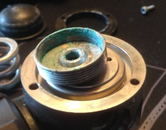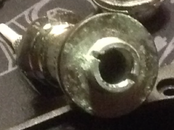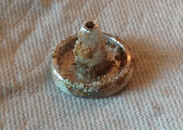Yeah, but a few of you guys doing exactly that, whose gear I had serviced, over the years, managed to bump me up to business class on a recent trip -- having had to replace pricey components and to break out the phosphoric acid to remove heavy interior corrosion of many a first and second stage.[T]here's a LOT of us that have been just doing exactly what @lowwall is saying for a LOT of years...and with no issues...
Just keep a cheap, small pony tank on hand; soak the pressurized things in a Rubbermaid tub for a few hours, with no apologies; and I'll wind up flying in the equivalent of Titanic steerage for the rest of my days . . .






